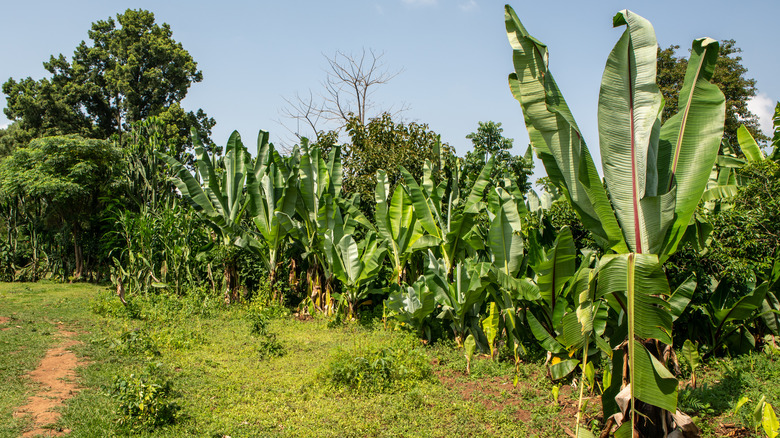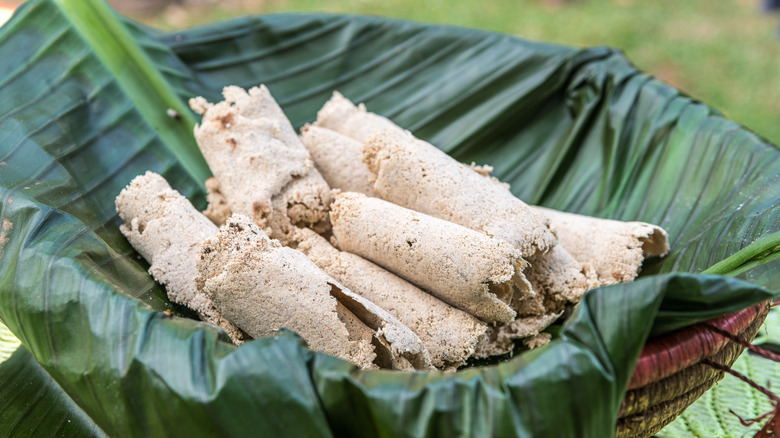Could This Ethiopian Staple Be The Future Of Food?
Labeled as the "false banana" because of its resemblance to the well-known yellow fruit, enset is starting to get some attention as a possible new staple food source for countries experiencing severe food insecurities. This versatile plant is proving itself to be beneficial because of its ability to provide an abundant and sustainable crop in the face of hunger and climate change challenges, according to the BBC.
Although enset hails from the same botanical family as the banana, the similar-looking "fruit" of the plant is actually a seed pod (via ProMusa). The edible portions of the plant are the rhizome and the pseudostem (which looks similar to a trunk, but is made with overlapping leaves). Mainly cultivated in Ethiopia, the pseudostem are harvested for the pithy fibers, which are fermented and used to make kocho ("a calorie-dense carbohydrate" similar to a flatbread, according to Atlas Obscura), porridge, and other dishes; while the rhizome is boiled to make amicho.
Enset is a food staple for over 20 million people, and scientists hope that the cultivation of enset will increase outside of Ethiopia for multiple reasons (via Kew).
Enset is a sustainable source of food
In addition to providing a high-calorie pulp used to feed millions of Ethiopians, enset has some unique properties that make it a promising crop to fight food instability and sustainable farming challenges. Even though it is a plant, enset's unique traits have earned it the name "tree against hunger" (via Kew).
Unlike other crops, enset can be planted and harvested during all seasons, which means that it can provide a constant food source that is easily replenished. If treated correctly, "hundreds of new shoots" can be gathered from one plant to create new crops. Its hearty and "somewhat drought tolerant" characteristics keep it going strong where other crops that are more susceptible to climate change issues may fail.
According to the BBC, researchers believe that these traits make it an ideal crop to be grown in many areas outside of Ethiopia. Most of the world currently relies on wheat, corn, and rice, and diversifying those sources will be an critical step in dealing with climate change and hunger. Scientists think that increasing the cultivation of enset could "boost food security" in other African countries by providing an alternative food source for up to 100 million people over the next 40 years.

